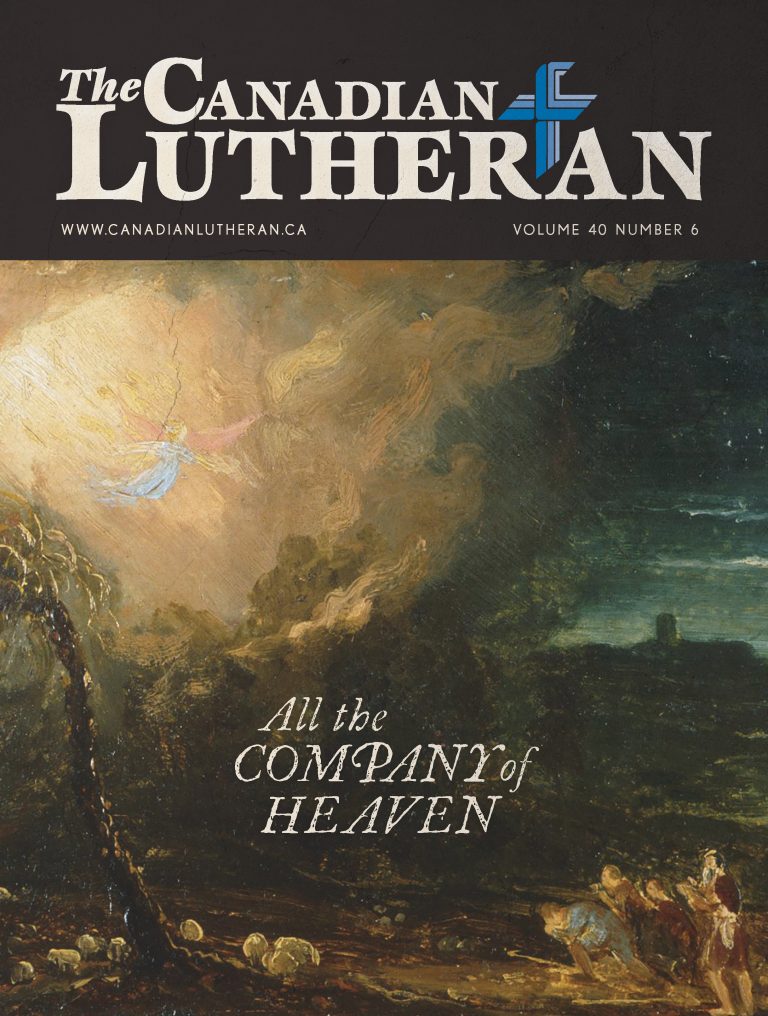Revival: What is it?

by Hans-Lutz Poetsch
translated by Robert Bugbee
What is meant by “revival?” The word describes a challenge by the apostle Paul to the congregation at Ephesus: “Wake up, O sleeper, rise from the dead, and Christ will shine on you” (Ephesians 5:14). It means that we begin to seek God anew and to concern ourselves with Him and His Word. When that takes place, the Almighty stands ready to call forth new confidence in us toward Him. We’ll recognize that we find eternal salvation in Jesus Christ, Who carried our guilt and paid for our redemption with His blood. Then we’ve been called from death to the life that the Risen One will give us even after our time in this world is over.
Wake up, O sleeper, rise from the dead, and Christ will shine on you.
In church history you find so-called “revival movements.” In Germany, the most famous one took place in the 1800s. These movements were always characterized by people turning to their Redeemer, Jesus Christ. Historians have attempted repeatedly to identify external causes that lead to a renewal of such simple, uncritical faith. They cite, for example, the trauma of the French revolution of 1789, in which the godless Enlightenment celebrated its highest triumphs; the dictatorship of Napoleon I over Europe; the way monarchs frequently repressed various liberation movements among their subjects; the economic depressions of that period; and finally, the celebration in 1817 of the 300th anniversary of the Reformation with its spiritual impulses. To be sure, on the surface those factors may have played a role in the revitalization of Christianity among the people. It is noteworthy, however, how similar movements took place at the very same time on other continents, especially in North America.
In other words, we do not create “revival.” It is rather a special gift. God’s Spirit engenders sincere trust in our Redeemer. He can do this, even when external circumstances seem totally unfavourable to the success of the Gospel’s proclamation. He can also use outward situations to suddenly create new hope in hopeless, despairing people through the saving message of Jesus Christ.
In Christian circles there are repeated calls for revival. This is particularly true when secularization and abandonment of the church seem to have gripped the vast majority of the population; when Sunday services are scarcely attended any more; when many people don’t even know the saving message of Christ; or when the content of the Lord’s commandments appears to have been forgotten. Right now we find ourselves in the middle of such a time and keep noticing where this leads. Crime is on the increase, self-centeredness seems to have replaced love of one’s neighbour and concern for other people, and the whole climate around us feels more raw. Wouldn’t it be wonderful if a spiritual revolution could happen, gripping one and all? Wouldn’t it be great if people would recognize that God stands on centre stage—not people!—and that one day they will have to give an answer to the Almighty for everything they have caused and done?
To be sure, in general we have not endured threatening material or economic problems in recent decades. We’ve also come to see, however, that the real sense in our existence cannot be found in such external success alone. This is why many still long for God to grant people spiritual revival.
From time to time, God gave the church the gift of revival preachers, messengers who had a profound impact on the population. If one examines their preaching, one finds that they leaned without reservation on the content of the Bible, and transmitted it without deleting anything and without accommodating themselves to society’s prevailing ideas. Only under these conditions did they receive the spiritual authority and power to awaken their listeners.
From time to time, God gave the church the gift of revival preachers. They leaned without reservation on the Bible.

Rev. Ludwig (Louis) Harms, 1808-1865.
For example, the well-known Pastor Louis Harms came from a minister’s family in northern Germany that was rationalistic in its mindset. He was brought to the point where he totally renounced their ideas and held firmly to God’s Word in the preaching he did at Hermannsburg. Harms constantly suffered from colds and hoarseness, and had to talk for a few moments to clear his voice before listeners could make out what he was saying. This did not diminish his spiritual force in the slightest. Thousands of people gathered beneath his pulpit, and the crowds came on foot from long distances just to hear him.
In our present time it is remarkable how almost nothing seems to have survived in the areas most affected by these revivals of the 1800s. One is reminded of Martin Luther’s word comparing the Gospel to a traveling rainstorm that lets the moisture fall on a stretch of land, makes it fruitful, and then moves elsewhere. Frequently those who were reached—or perhaps their children—did not cling to what God had given them. As a result, the land grew dry and barren. After all, the Lord doesn’t force anyone. He wants everyone to be saved and to come to a knowledge of the truth. If people are careless or decide to reject what He gives, He permits that to happen. In the end, however, each one will have to give an account before Him.
We need to hold firmly to God’s promises in Jesus Christ, and not let ourselves ever be separated from them. Our future depends on it, and already here and now we find an anchor in the Lord and the confidence we need so desperately for our lives.
———————
Rev. Dr. Hans-Lutz Poetsch was a clergy member of Lutheran Church–Canada’s sister synod in Germany, the Independent Evangelical Lutheran Church. Dr. Poetsch, now passed on to glory, was formerly the radio preacher on Germany’s “Lutheran Hour.” This article originally appeared on a 1999 release from Der Lutherische Bote, an audio devotional production for the blind and shut-ins.
Rev. Dr. Robert Bugbee is President of Lutheran Church–Canada.






